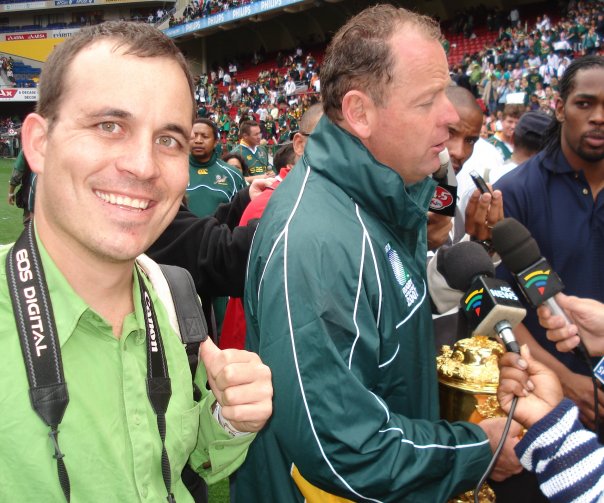 James Styan is a political journalist at Media24. He is very good at live-tweeting from events or about unfolding news and politics. That much is apparent from the more than 18,500 tweets that he has sent.
James Styan is a political journalist at Media24. He is very good at live-tweeting from events or about unfolding news and politics. That much is apparent from the more than 18,500 tweets that he has sent.
What won’t you tweet about? Why?
My personal life, my family and my love life. Also things like bowel movements. Really nasty toilet humour. There needs to be some sort of standard upheld even on Twitter.
Do you have an idea of who your followers are? When you tweet, who do you think is reading your tweets?
I do have a vague idea. They seem to be a wide spectrum of mainly liberal minded South Africans interested in following/debating issues and topics I write about as a journalist. There are a few less liberal-minded individuals, a few colleagues and friends and a few people I work with that I interact with on Twitter. I do appreciate the interaction and the to-and-fro of a chat over 140 characters, as it breaks arguments down to the bare essentials.
Which of your tweets have received the most reaction, good or bad?
I can’t recall exactly which ones. I think tweets about politics get a lot of reaction – both good and bad.
Have you ever altered your behaviour on Twitter based on reactions and interactions with people?
No I have not.
Is it possible for you to separate the private from the professional on Twitter? If so, how?
Yes, I have found it to be possible. A simple rule of thumb determines what I put on Twitter. I ask myself: ‘Will I publish the same words on a billboard in front of my parents’ home or in front of the bosses office?’ If the answer is yes, I don’t have a problem and I tweet it.
What do you think makes the South African Twitter landscape unique?
Our politics and history. The issues we debate on are very uniquely South African. These include issues like how do we deal with the legacy of apartheid. How do we trust each other? How do we build the country up? How do we move forward?
I would say that most of the conversations in the South African Twittersphere are linked to those points. For example, even when tweeting on cultural issues or about sports events like rugby matches, the tone and themes of the tweets often reflect the same issues or larger political struggles that the country is facing.
I think this is actually helping I to bridge some divides and help South Africans understand one another better.
Add your voice to research about how South Africans Tweet by completing this short survey.
